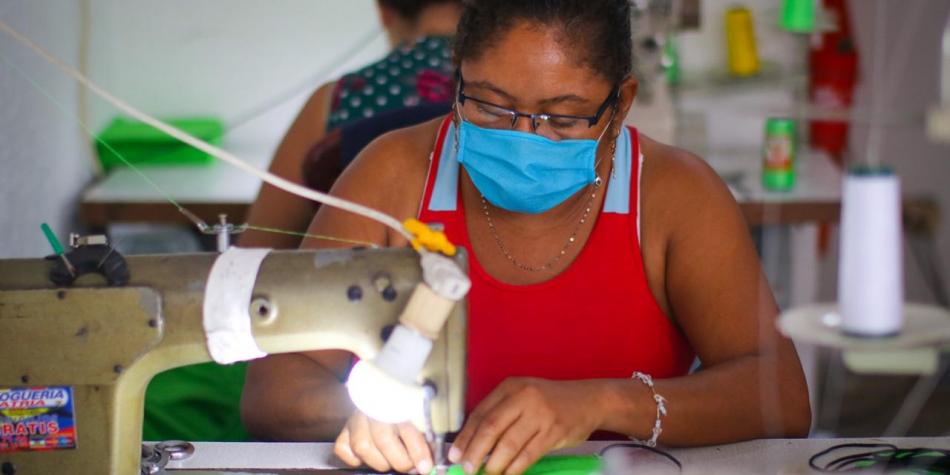![]() Cloth mouthpieces do prevent transmission of the Covid-19
Cloth mouthpieces do prevent transmission of the Covid-19
This is indicated by research published in the Annals of Internal Medicine. Know the findings.

Household mother making the masks.
© Photo: Nelson Ardila Arias
Fabric masks are effective in decreasing the transmission of the new coronavirus, according to a highly rigorous investigation that has just been published in the Annals of Internal Medicine.
According to the study, although no direct evidence indicates that these masks are totally effective in reducing coronavirus transmission, if there is consistency in the findings to recommend them, within the public health programs deployed in this pandemic.
The results demonstrate that while the fabric does not stop isolated virions, based on the fact that most viral transmission occurs through larger particles in secretions, including aerosols, which are directly generated by speaking, eating, coughing and Sneezing, these types of masks essentially stop these particles from the inside out.
And in this sense, the researchers add, each virus-laden particle retained in these masks does not fall to a surface or to places where they can then be picked up by touch and then transmitted to the airway.
Analysis showed that the fabric can block the droplets, aerosols, and layers used to make these masks, adds efficiency.
(Also read: WHO: Recommends Cloth Cap)
The analysis also evaluated the effectiveness of scarves, sweatshirts, T-shirts, or towels to block the virus and found that the filtration efficiency was 10 to 40 percent, so it is not recommended.
With these results, the article is clear when saying that “when applying the principles of medicine based on public policy evidence, there is consistent and high-quality evidence that many (but not all) fabric face masks reduce the transmission of drops. and aerosols and can be effective in mitigating contamination of the environment by any virus, including SARS CoV 2 ”.
He also clarifies that "given the severity of this pandemic and the difficulty of control, it suggests that the possible benefit of a moderate reduction in the transmission of the virus, exceeds the possibility of damage."
Finally, the researchers state that altruism and the need to protect others must be appealed to, against the consequences of the incorrect use of these face masks and the reduction of hand hygiene, due to false safety, which can mitigate with education programs.
Scientists also note that advocating for the public to make and wear cloth masks transfers the cost of a public health intervention from society to the individual, and that in low-income areas and for people living in poverty, this is unacceptable.
Hence he suggests "that this could be mitigated through public health interventions, including the manufacture and distribution of cloth masks, with evidence-based materials and designs."
Health Unit







